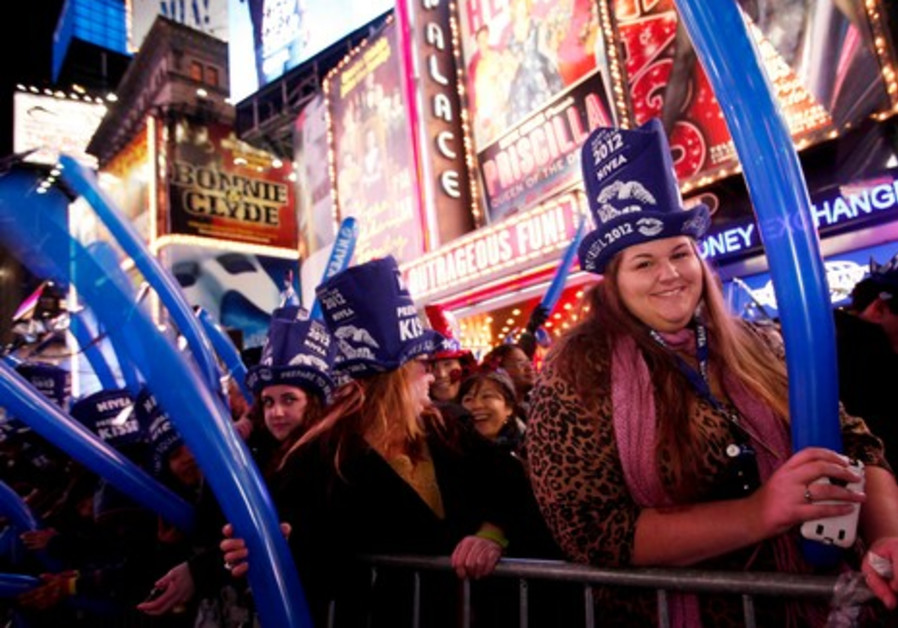1 in 5 Israeli Jews celebrates New Year’s Eve

New Year 2012 celebration. (photo credit: REUTERS)
Some 20% of Israeli Jews celebrate New Year’s Eve on the Gregorian Calendar on December 31, but the majority of Israeli society remains uninterested in this non-Jewish celebration.
According to a study by the Jewish People Policy Institute, 78% of the Israeli Jewish population consider it a “completely ordinary day,” while just 6% say it is “the real New Year’s Eve and conduct any form of self-reflection.
Rosh Hashanah, the Jewish New Year at the beginning of the month of Tishrei, the month beforehand and the 10 days between Rosh Hashanah and Yom Kippur are the traditional time in the Jewish calendar for soul searching, reflection and self-improvement.
Secular Jews are somewhat more likely to mark New Year’s Eve, with 35% saying they celebrate on the date, whereas just 4% of national-religious, and 1% of haredi Israeli Jews say they do.
Of the 20% marking New Year’s Eve, called Sylvester in Hebrew, approximately 8% are immigrants from the former USSR who said they celebrate Novi God, a civil and cultural festival that became deeply entrenched within Russian culture, and was brought to Israel by Soviet immigrants.
Five % of Israeli Jews have a tree at home, about 60,000 to 70,000 Jewish households according to the Central Bureau of Statistics, to celebrate Novi God.
It is also customary to exchange gifts in these households.
Customs from Christmas were transferred from the religious festival to the secular, civil Novi God celebration in the former Soviet Union.
Novi God is Russian for “new year,” and has traditionally been celebrated in the states of the former Soviet Union. It is also often celebrated by Israeli citizens who emigrated from that region, but is largely viewed as a non-Jewish celebration and is typically disdained in Orthodox circles, since some symbols of Christmas, such Christmas trees, have been associated with the celebration.
The data was drawn by the JPPI from a survey of 3,000 Israeli Jews with a reported statistical margin of error of +/- 1.8%.
Join Jerusalem Post Premium Plus now for just $5 and upgrade your experience with an ads-free website and exclusive content. Click here>>






Comments are closed.